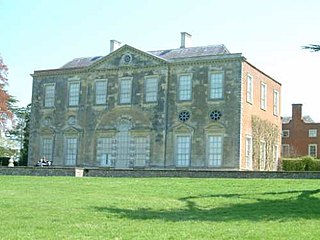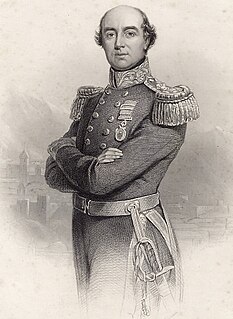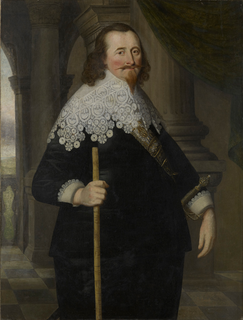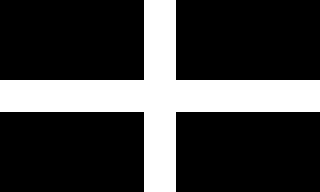
Sir John St Aubyn, 5th Baronet, was a British Member of Parliament, High Sheriff of Cornwall and Grand Master of the Freemasons. Born in London, he succeeded to the baronetcy on 12 October 1772, at which point he inherited Clowance, the family's estate near Crowan, Cornwall.

There have been three baronetcies created for persons with the surname Verney, one in the Baronetage of England and two in the Baronetage of the United Kingdom. Two of the creations are extant as of 2016.

There have been two baronetcies created for members of the Armytage family, one in the Baronetage of England and one in the Baronetage of Great Britain. One creation is extant as of 2008.
The Fletcher, later Aubrey-Fletcher Baronetcy, of Clea Hall in the County of Cumberland, is a title in the Baronetage of Great Britain. It was created on 20 May 1782 for Henry Fletcher, a Director of the Honourable East India Company and Member of Parliament. He was a descendant of Philip Fletcher, whose brother Sir Richard Fletcher was the father of Sir Henry Fletcher, 1st Baronet, of Hutton in le Forest. Fletcher was succeeded by his son, Henry, the second Baronet. He was High Sheriff of Cumberland from 1810 to 1811. His grandson, the fourth Baronet, was a prominent Conservative politician. In 1903 he assumed by Royal licence the additional surname of Aubrey on inheriting the Aubrey estates on the death of Charles Aubrey. Aubrey-Fletcher died childless and was succeeded by his younger brother, Lancelot, the fifth Baronet. He assumed by Royal licence the additional surname of Aubrey on succeeding to the title in 1910. His eldest surviving son, Henry, the sixth Baronet, was Lord-Lieutenant of Buckinghamshire from 1954 to 1961. He was succeeded by his son, John, the seventh Baronet. He was High Sheriff of Buckinghamshire in 1961. As of 2008 the title is held by his son, Henry, the eighth Baronet, who succeeded in 1992. He is Lord-Lieutenant of Buckinghamshire since 2006.
There have been seven baronetcies created for persons with the surname Palmer, two in the Baronetage of England, one each in the Baronetages of Ireland and of Great Britain and three in the Baronetage of the United Kingdom. Four of the creations are extant as of 2015, one of which became merged into the first grantee's later barony: Baron Palmer, the first baron being an heir to part of the Huntley & Palmers international biscuit business and a patron of music. The other current creations were awarded to a lawyer and politician of wealth under Charles II, to a South Sea Company director under George III and to a shipbuilder, shipbroker who was a Liberal statesman under Victoria.
Sir William Pratt Call, 2nd Baronet is best known for holding the office of High Sheriff of Cornwall between 1807 and 1808, and for being a partner in a London banking house.
The Bridges Baronetcy, of Goodnestone in the County of Kent, was created in the Baronetage of Great Britain on 19 April 1718 for Brook Bridges. His son the second Baronet, died in 1733 whilst in office as High Sheriff of Kent. His grandson, the third Baronet, represented Kent in the House of Commons. In 1842, the fifth Baronet, unsuccessfully claimed the ancient barony of FitzWalter as a descendant of Mary, sister of the seventeenth Baron FitzWalter. He later sat as a Member of Parliament for Kent East. In 1868 he was created Baron FitzWalter, of Woodham Walter in the County of Essex, in the Peerage of the United Kingdom. However, the peerage became extinct on his death, while he was succeeded in the baronetcy by his younger brother, the sixth Baronet. On his death the title passed to his first cousin, the seventh Baronet. He was the son of Reverend Brook Henry Bridges, third son of the third Baronet. When he died this line of the family also failed and the title was passed on to his first cousin, the eighth Baronet. He was the son of Reverend Brook Edward Bridges, fourth son of the third Baronet. He never married and on his death in 1899 the baronetcy became extinct.
The de Capell-Brooke Baronetcy, of Oakley in the County of Northampton, was a title in the Baronetage of the United Kingdom. It was created on 20 June 1803 for Richard de Capell-Brooke, a bencher of the Inner Temple and for 30 years a Colonel of the Northamptonshire Militia. Born Richard Supple, he was the son of Richard Supple, of Ahadoe, who in the 1750s married Mary, daughter of Arthur Brooke, of Great Oakley, Northamptonshire. In 1797 he inherited the Great Oakley estate from his great-uncle, Wheeler Brooke, and assumed at that time by sign manual and in obedience to the testamentary injunction of his great-uncle the surname Brooke as well as the original surname of his family, de Capell. He was succeeded by his eldest son, the second Baronet. He was a noted travel writer and Fellow of the Royal Society. The fifth Baronet was High Sheriff of Rutland in 1899, a Deputy Lieutenant of Northamptonshire and a Justice of the Peace and also unsuccessfully stood three times for the parliamentary seat of East Northamptonshire. On 4 July 1939 he was elevated to the Peerage of the United Kingdom as Baron Brooke of Oakley, of Oakley in the County of Northampton. The barony became extinct on his death in 1944 while he was succeeded in the baronetcy by Sir Edward de Capell-Brooke, the fifth Baronet. The baronetcy became extinct on the latter's death in 1968.

There have been twenty baronetcies created for persons with the surname Williams, eight in the Baronetage of England, three in the Baronetage of Great Britain and nine in the Baronetage of the United Kingdom. Only five of the creations are extant as of 2017..
The Tapps, later Tapps-Gervis, later Tapps-Gervis-Meyrick Baronetcy, of Hinton Admiral in the County of Hampshire, is a title in the Baronetage of Great Britain. It was created on 28 July 1791 for the landowner and developer George Tapps. The second Baronet sat as Member of Parliament for New Romney and Christchurch. He assumed in 1835 the additional surname of Gervis. The third Baronet was High Sheriff of Anglesey in 1878. He assumed in 1876 by Royal licence the additional surname of Meyrick according to the will of Owen Fuller Meyrick, a relative on his mother's side, from whom he inherited the Bodorgan estate on the Isle of Anglesey. The fourth Baronet was High Sheriff of Hampshire in 1900. The fifth Baronet was High Sheriff of Anglesey in 1939.
The Cory-Wright Baronetcy, of Caen Wood Towers, High Gate, in St. Pancras in the County of London and Hornsey in the County of Middlesex, is a title in the Baronetage of the United Kingdom. It was created on 28 August 1903 for Cory Cory-Wright, Chairman of William Cory & Son, coal and oil shippers. Born Cory Wright, he assumed by Royal licence the additional surname of Cory in 1903. He was High Sheriff of Middlesex in 1902. The second Baronet was High Sheriff of Hertfordshire in 1921. The third Baronet was the husband of Felicity Tree, daughter of Sir Herbert Beerbohm Tree.

The FitzHerbert baronetcy, of Tissington in the County of Derby, is a title in the Baronetage of Great Britain. It was created on 22 January 1784 for William FitzHerbert, of Tissington Hall, Derbyshire.
There have been three baronetcies created for persons with the surname Pole, one in the Baronetage of England, one in the Baronetage of Great Britain and one in the Baronetage of the United Kingdom. Two of the creations are extant as of 2008.

The Isham Baronetcy, of Lamport in the County of Northampton, is a title in the Baronetage of England.

There have been two baronetcies created for persons with the surname Wheler, one in the Baronetage of England and one in the Baronetage of the United Kingdom. One creation is extant as of 2008.

The Molesworth, later Molesworth-St Aubyn Baronetcy, of Pencarrow near St Mabyn in Cornwall, is a title in the Baronetage of England. It was created on 19 July 1689 for Hender Molesworth, Governor of Jamaica.

Sir John Trelawny, 1st Baronet was a Cornish baronet and soldier from Trelawne, Cornwall. He was High Sheriff of Cornwall.

Sir John Call, 1st Baronet was an English engineer and baronet.

Sir William Wrey, 1st Baronet of Trebeigh, St Ive, Cornwall and North Russell, Sourton, Devon, was High Sheriff of Cornwall in 1598 and was created a baronet by King Charles I in 1628.
Sir Josiah William Hort, 2nd Baronet of Hortland, County Kildare, Ireland was a High Sheriff of Kildare and a Member of the Parliament of the United Kingdom.












